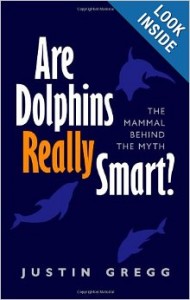 Mel Cosentino obtained her Degree in Environmental Biology at the Universidad de Málaga (Spain) and her MRes in Applied Marine and Fisheries Ecology at the University of Aberdeen (UK). She has been involved in cetacean research since 1998, starting as a volunteer for Fundación Orca Patagonia-Antártida in Argentina (her country of birth) working in educational campaigns against killer whale captivity. Since then she has participated in several research projects in Spain, Portugal and Norway. Mel has conducted field work, both from land and at sea, focused on different cetacean species, including killer whales, Risso’s dolphins and Northern bottlenose whales. In addition, she participated in the Annual meeting of the IWC as part of the Luxembourgish delegation, both in 2011 and 2012.
Mel Cosentino obtained her Degree in Environmental Biology at the Universidad de Málaga (Spain) and her MRes in Applied Marine and Fisheries Ecology at the University of Aberdeen (UK). She has been involved in cetacean research since 1998, starting as a volunteer for Fundación Orca Patagonia-Antártida in Argentina (her country of birth) working in educational campaigns against killer whale captivity. Since then she has participated in several research projects in Spain, Portugal and Norway. Mel has conducted field work, both from land and at sea, focused on different cetacean species, including killer whales, Risso’s dolphins and Northern bottlenose whales. In addition, she participated in the Annual meeting of the IWC as part of the Luxembourgish delegation, both in 2011 and 2012.
“The fact that an opinion has been widely held is no evidence whatsoever that it is not utterly absurd; indeed in view of the silliness of the majority of mankind, a widespread belief is more likely to be foolish than sensible” (Bertrand Russell)
 This is how the book “Are dolphins really smart?” by Dr. Justin Gregg starts. It has been recently published and it is available in several countries, including the US and the UK. Moreover there have been a large number of newspaper and web stories based on the conclusions of the book, most along the lines of “dolphins are no smarter than chickens” “Flipper is a thug!” and “dolphins are dumb” This led to a rebuttal article published in Southern Fried Science when David Shiffman interviewed the author and some cetacean scientists about the media frenzy spawned by the book’s release. Studying animal cognition is no easy task, and Dr. Gregg has put together a great amount of information; however, I believe the reader will be confused and misled by some of the comments and statements made by the author, a scientist who holds a PhD and who claims to be analysing the evidence “as impartially as possible with a sincere desire to let objectivity take centre stage”.
This is how the book “Are dolphins really smart?” by Dr. Justin Gregg starts. It has been recently published and it is available in several countries, including the US and the UK. Moreover there have been a large number of newspaper and web stories based on the conclusions of the book, most along the lines of “dolphins are no smarter than chickens” “Flipper is a thug!” and “dolphins are dumb” This led to a rebuttal article published in Southern Fried Science when David Shiffman interviewed the author and some cetacean scientists about the media frenzy spawned by the book’s release. Studying animal cognition is no easy task, and Dr. Gregg has put together a great amount of information; however, I believe the reader will be confused and misled by some of the comments and statements made by the author, a scientist who holds a PhD and who claims to be analysing the evidence “as impartially as possible with a sincere desire to let objectivity take centre stage”.
It would be impossible to critique the thesis of the book point by point, so I have compiled the topics I consider to be more problematic.